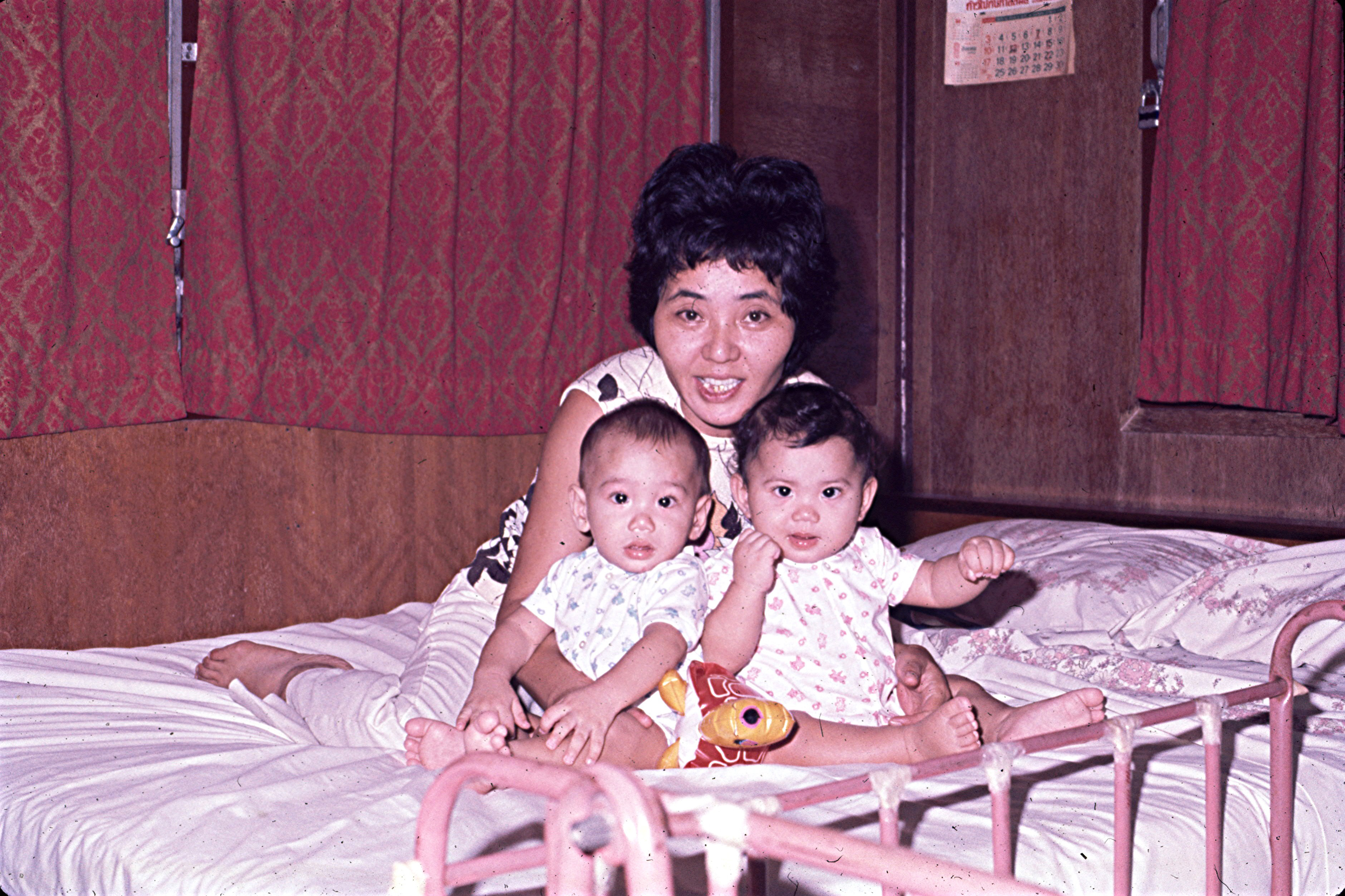Immigration has been selected as the UConn Reads theme for the upcoming academic year, following on the previous two years’ themes of race and religion. The UConn Reads Committee is now seeking nominations for a book or other form of text on the theme, “The Conundrum and Challenge of Immigration.” You can make a nomination here.
There are currently 41 million first-generation immigrants living in the United States. I am one of them. Although I have held U.S. citizenship since 1979, I am still part of, and affected by, the swirling debate surrounding immigration. Here is the story of how I came to be here.
I was born in Udon Thani, Thailand on Sept. 2, 1974. My biological father was an American G.I. who was stationed at Udorn Royal Thai Air Force Base in the northwest corner of the country near the Thai/Laos border. Although the base is now largely forgotten, it once served as the primary hub for the CIA-owned Air American fleet, which carried out covert campaigns in Southeast Asia. It also included the black helicopters that landed atop various buildings in Saigon during the final days of the Vietnam War. On April 29 and 30, 1975, Air America carried 1,373 Americans and 5,595 individuals of other nationalities out of Vietnam as part of the largest evacuation in human history during the chaotic days, weeks, and months after the North Vietnamese overtook the South Vietnam capital.
What follows is a fragmented history of how I and my twin brother came into being. My biological mother was a Cambodian who was married to a Thai pilot. She and her five children had accompanied her husband to Udon Thani, where she met and had an affair with my biological father. I never knew my biological mother, but I can imagine the difficulty of her circumstance. With few resources, enmeshed in familial conflict, and facing the physical reality of two mixed-race children born out of wedlock, she quickly put us up for adoption. At the same time, a mixed-race couple – a third-generation German Scots-Irish American G.I. .and his first-generation Japanese wife – also living at Udon Thani were looking to adopt.
By February 1975, my adoptive parents – the Schlunds – would finally have the family they had spent 13 years of their marriage searching for. Two months later, we left Thailand. Because my father was career military, we moved around: we lived in Florida, England, and Georgia, before we settled in Austin, Texas. In 1979, my brother, my mother, and I became naturalized U.S. citizens. I remember my father telling me I could be anything I wanted to be in the United States, with one notable exception: due to my citizenship status, I could never be president. Aside from that, I was raised with the concept that the United States was first and foremost a nation of immigrants. At a relatively young age, I even thought that my immigrant background made me more American than my native-born peers.
Over time, however, as an immigrant and an Asian American, I have come to realize that while we may consider the United States a “nation of immigrants,” it has also been a country of profound nativism and at times xenophobia. For example, attempts were made to exclude the Chinese in the 19th century, and Southern and Eastern European immigrants were restricted in the early 20th century. In both past and present, the divide between native-born and foreign-born is at the fore in debates as to whether or not we – as a country – should open doors or build walls. On a more personal basis, tensions around immigration have come to the surface in painful exchanges, when strangers have told me to “go back to where I come from,” or assume that English is my second language.
The “immigration question” remains unresolved, despite declarations that as Americans, we are “all,” by way of our families’ past history, immigrants. From restrictions targeting Asian immigrants at the turn-of-the-20th century to contemporary deliberations involving refugee, and from prohibitions involving the undocumented to travel bans against so-called “terrorist” nations, immigration has consistently occupied a vexed place in U.S. politics.
The UConn Reads Selection Committee seeks nominations that represent both sides of the debate and reflect the complexity of the issues. We are open to multiple types of nomination, but are particularly interested in novels, non-fiction, poetry, short story collections, and graphic novels. We will receive and review nominations online this month and next, and will announce the selection in June.



